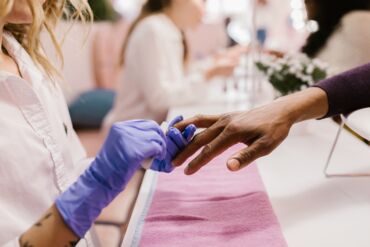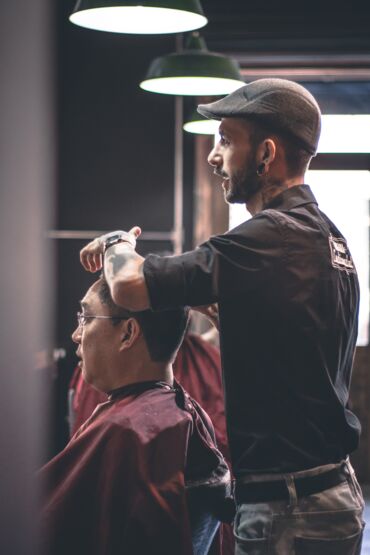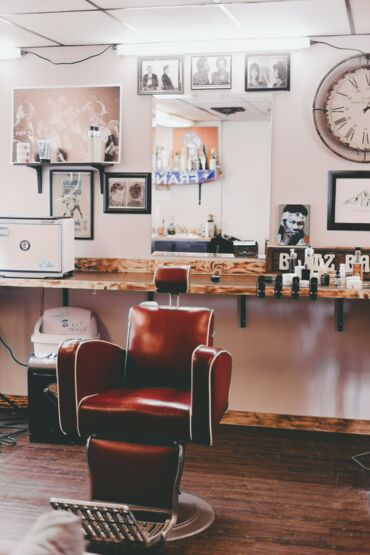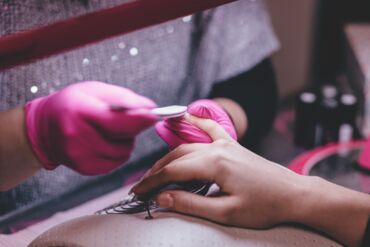Everything you need to know about self-employed hairdresser insurance with Pedro Plastic
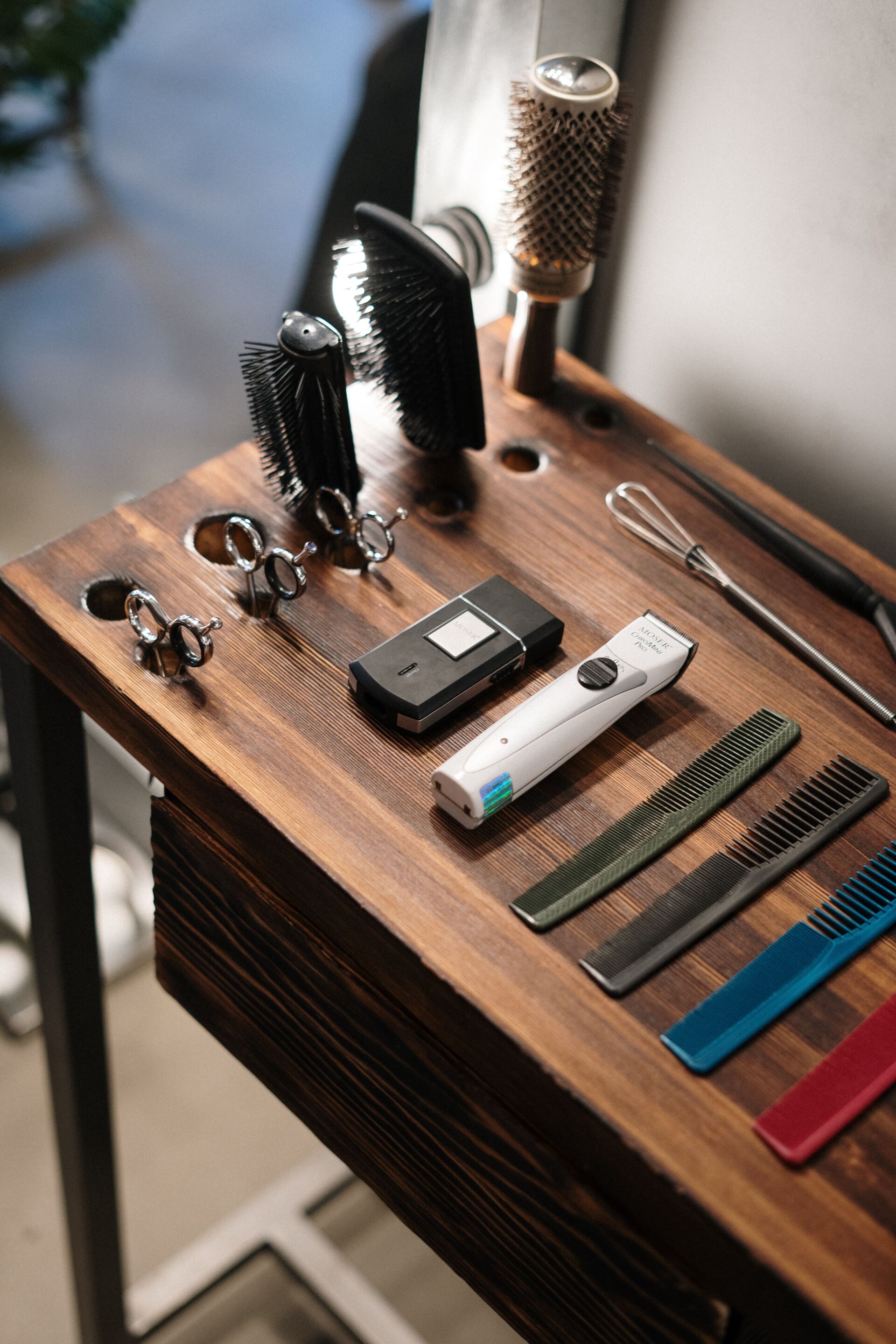
Everything you need to know about self-employed hairdresser insurance with Pedro Plastic
Being self-employed comes with many perks. Many hairdressers, instead of settling down in a salon working for a single employer or becoming the owner themselves, choose the life of a freelancer, working alone, renting a chair or hitting the road as a mobile specialist. It’s a very interesting business model that lures many free spirits out there. However, it also comes with some specific challenges - one of them being taking care of your legal matters.
We invited our Booksy ambassador, Pedro aka Pedro Plastic, who works behind the shear as a freelance hairdresser in London, to share his knowledge on hairdressing insurance for freelancers - let’s learn everything you need to know from someone firmly in the game!
“There are a few factors that you have to consider before you start being a freelancer”, says Pedro, “and one of them is insurance. You need to be 100% covered because you never know what can happen. As great professionals as we can be, there is always a big chance of something happening, right?”. Accidents occur all the time and even the most experienced stylists make mistakes. You simply cannot go throughout your entire career without making at least one. Besides minimizing the risks by implementing proper protocols and policies, the best thing you can do is prepare yourself to deal with the consequences. That’s what hairdressing insurance is all about.
Insurance for self-employed hairdressers with their own salons
“If you are a salon owner, you need to have insurance that covers the building”, explains Pedro. It’s crucial to keep in mind that building insurance only applies to the property itself, not the items inside it or the people staying there. You need a good, holistic public liability insurance for hairdressers to help with claims associated with personal injury. Both will help you immensely if a client has an accident in your salon. “Imagine - I know, the worst scenario - that your client just stepping into the salon and the light just falls on their head”. It may sound like a stroke of unbelievable bad luck, but with something like that happening, you will need both your public liability insurance and insurance for the building. “That insurance is designed to cover this kind of accident, right?”.
Liability insurance - an absolute must for hairdressers
No matter if you rent a chair, are a mobile specialist or own a hair salon, insurance that is an absolute necessity is professional treatment risk cover. “As a freelance hairdresser, you need to own insurance that covers what you do directly to your client. For example, if you cut your client, or if you burn your client, or if something goes wrong with the colour, you need to be covered”. Conventional public liability does not cover any damage claims that steam from professional services, so make sure you get an insurance policy that includes professional treatment risk as well! Comprehensive public liability insurance is the cornerstone of hairdressing.
Tools insurance
They say that you recognize a specialist by their tools - and there is a lot of truth in it. “Make sure that the tools that you work with are in great shape”, remarks Pedro. “Change your tools once in a while - as soon as the guarantee ends, so that you are covered by the brand if something happens”. Monitor tool wear and, just as Pedro advises, keep track of the warranty expiration date. You can also get tools insurance, which can be handy if you travel a lot, which will help you when your priceless shears, scissors and Dyson goodies get lost, stolen or damaged.
Mobile hairdresser insurance
“As a freelance hairdresser, you do not need to work in one single place - you can do more mobile hairdressing, or you can play around, work whenever you want, that’s why you decided to be a freelancer”, says Pedro. Personal accident insurance covers you in case of unforeseen accidents, whenever any bodily harm occurs, so it’s worth considering if you are a self-employed mobile hairdresser. “Such insurance will cover you on your way to work as well”.
And what if something goes wrong?
“If something happens because the product wasn’t well manufactured, you need to contact the brand directly, as well as your insurance company”, explains Pedro. “Brands have their own insurance companies to deal with these situations, while your insurance company will represent you. They will then contact each other”. This makes dealing with unpleasant situations much easier - you don’t have to waste time (and nerves) on a tiring back-and-forth, and you can rest assured that the issue is being resolved by specialists that know what they are doing. “The same happens if something goes wrong with your hands on it - if you make any mistake, your insurance company will make sure to deal with everything directly with your client, so you don’t have to get involved”.
The importance of patch tests
Is it within your habits to do a patch test whenever a new client wants to book a colour appointment with you? If not, then you should really reconsider.
Many hair dyes contain a chemical called paraphenylenediamine, better known as PPD, which is notorious for causing irritation or allergic reactions in certain people. There are other chemicals present in hair dyes that can cause a flair of allergy, but PPD is the most prevalent offender. Its highest concentration occurs in darker colours, so that’s also something to keep in mind.
What’s interesting is that a person who previously showed no sight of reacting to a certain allergen can develop an allergy over time. “If you are a colourist, just make sure you do a patch test on every single client prior to a colour appointment”, says Pedro. “Every time I have a new customer trying to book in, or a client that’s not that often to come to visit me for hair colour, I always book a consultation and a skin test. A skin test is basically a drop of colour and a drop of peroxide at the back of the ear, or on the arm”, he explains. “Leave it for at least an hour, check how they react to the colour, and then, after 48 hours, if there is still no reaction, you can make the appointment”.
In a good company
Being a freelancer means that you work solo a lot, so it’s even more important to find reliable helpers. “It’s always better to be protected by a good company”, remarks Pedro. “Just search on Google which one will be the best for you and make sure you start your insurance from the day one that you start freelancing”. A trustworthy insurer can be a godsend but is not the only support you can get. A modern salon management software, such as Booksy, can become your receptionist, marketing specialist, accountant and sales aid all at once, helping you manage the day-to-day while you are working with clients. If you are a freelancer, having a system that allows your clients to book their own appointments really changes the way you operate on a daily basis.
Don’t let the nature of your work turn you into a loner, too! “Being a freelance hairdresser doesn’t mean that you are alone. Just be in touch with your community! The hairdressing community is huge, so make sure to contact people, ask questions, check everyone’s experiences, make sure you do good research”. The beauty industry is well-known for being supportive and welcoming, so feel free to reach out to other specialists, let it be to get to know their experiences with hairdressing insurance or any other topic. It’s much easier to grow your business with a sound support system - and it’s true for even the most free-spirited freelancers!



